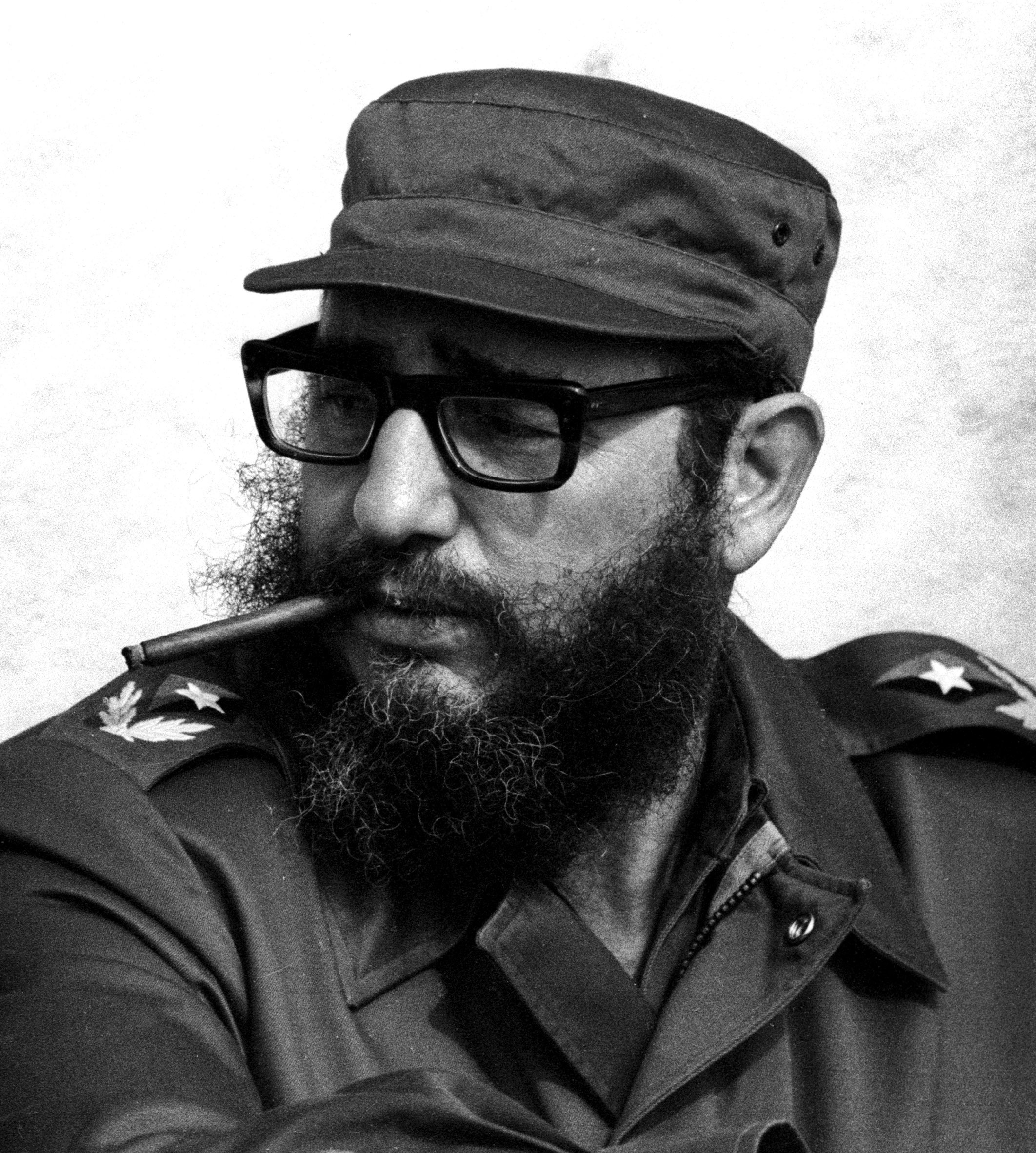|
|
| Line 15: |
Line 15: |
| | political_line = [[Marxism-Leninism]] | | | political_line = [[Marxism-Leninism]] |
| |death_cause=Natural Causes}} | | |death_cause=Natural Causes}} |
| '''Fidel Alejandro Castro Ruz''' 13 August 1926 – 25 November 2016) was a Cuban revolutionary and politician who served as Prime Minister of Cuba from 1959 to 1976 and President from 1976 to 2008. Ideologically a [[Marxism-leninism|Marxist–Leninist]] and Cuban nationalist, he also served as the First Secretary of the [[Communist Party of Cuba]] from 1961 until 2011. | | '''Fidel Alejandro Castro Ruz''' {{Datebio|birthday=13th|birthmonth=August|birthyear=1926|deathday=25th|deathmonth=November|deathyear=2016}} was a [[Republic of Cuba|Cuban]] [[Marxism–Leninism|Marxist-Leninist]] revolutionary and a leader of the [[Cuban Revolution]], alongside [[Che Guevara]]. He served as Prime Minister of Cuba from 1959 to 1976 and President from 1976 to 2008. He also served as the First Secretary of the [[Communist Party of Cuba]] from 1961 until 2011. |
| | |
| Born in Birán, Oriente as the son of a wealthy Spanish farmer, Castro adopted [[Left-wing politics|leftist]] and anti-imperialist ideas while studying law at the University of Havana. After a year's imprisonment after launching a failed attack against the right-wing Batista government in 1953, Castro traveled to Mexico where he formed a revolutionary group, the [[26th of July Movement]], with his brother [[Raúl Castro]] and [[Che Guevara|Ernesto "Che" Guevara]]. Returning to Cuba, Castro took a key role in the [[Cuban Revolution]] by leading the Movement in a guerrilla war against Batista's forces from the Sierra Maestra. After Batista's overthrow in 1959, Castro assumed military and political power as Cuba's Prime Minister. The United States came to oppose Castro's government and unsuccessfully attempted to remove him by assassination, economic blockade, and counter-revolution, including the [[Bay of Pigs Invasion]] of 1961. Countering these threats, Castro aligned with the [[Soviet Union]] and allowed the Soviets to place nuclear weapons in Cuba, resulting in the [[Cuban Missile Crisis]] – a defining incident of the [[Cold War]] – in 1962.
| |
| | |
| Adopting a Marxist–Leninist model of development, Castro converted Cuba into a one-party, socialist state under Communist Party rule, the first in the [[Western Hemisphere]]. Policies introducing [[Economic planning|central economic planning]] and expanding [[Healthcare in Cuba|healthcare]] and [[Education in Cuba|education]] were accompanied by state control of the press and the suppression of internal dissent. Abroad, Castro supported anti-imperialist revolutionary groups, backing the establishment of [[Marxism|Marxist]] governments in [[Presidency of Salvador Allende|Chile]], [[Junta of National Reconstruction|Nicaragua]], and [[People's Revolutionary Government (Grenada)|Grenada]], as well as sending troops to aid allies in the Yom Kippur, Ogaden, and [[Angolan Civil War]]. These actions, coupled with Castro's leadership of the [[Non-Aligned Movement]] from 1979 to 1983 and [[Cuban medical internationalism|Cuba's medical internationalism]], increased Cuba's profile on the world stage. Following the [[Dissolution of the Soviet Union|Soviet Union's dissolution]] in 1991, Castro led Cuba through the economic downturn of the "[[Special Period]]", embracing [[Environmentalism|environmentalist]] and [[Anti-globalization movement|anti-globalization]] ideas. In the 2000s, Castro forged alliances in the Latin American "[[pink tide]]" – namely with [[Hugo Chávez]]'s [[Venezuela]] – and signed Cuba up to the [[ALBA|Bolivarian Alliance for the Americas]]. In 2006, Castro transferred his responsibilities to Vice President Raúl Castro, who was elected to the presidency by the National Assembly in 2008.
| |
